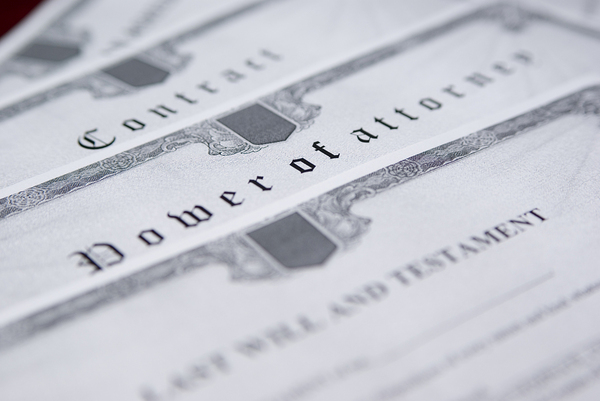On a list of fields likely to automate, “legal” usually isn’t the first to spring to mind. But, of course, some standard contracts and situations have been made simpler by technology news: programs that provide templates and wording for common business situations, such as payment for work rendered, for example.

Blockchain may have some uses in managing legal contracts…
Automating Tracking and Payment Is One Potential Use
But the use of technology in the legal field may not end there. A recent MIT Technology Review article reports that two firms that provide this type of software are also branching into the use of smart contracts and blockchain technology. It could make legal contracts easier to draw up, less costly, and quicker. The two firms are Rocket Lawyer and LegalZoom.
Right now, for instance, a contract that specifies payment for work rendered will generally set forth the obligations of the work and the right to get paid. But the act of actually issuing a check is a different process, and often handled in a different area or by a different organization.
Simply put, blockchain could change the existing system, keeping track of the rights and obligations in a specific contract, noting when the obligations have been fulfilled, and issuing payment once the obligation has been fulfilled.
Rocket Lawyer’s program is called Rocket Wallet, and is slated to run on the Ethereum blockchain. It is currently in beta testing, and the company expects to launch a product in late 2019.
LegalZoom is working on the technology for smart contracts along with several startup partners.

…but several challenges need to be worked out, including the privacy of contracts versus the transparency of blockchain.
Legal Protocol for Blockchain?
But, as the MIT Technology Review points out, some observers see the interface of blockchain and law as being larger, and see recent innovations as part of the larger blockchain project.
In theory, blockchain allows the transfer of assets globally, in a secure and fast way. But in actuality, transfers of assets often have legal contracts specifying rights and obligations as well. Blockchain has to be able to work with legal contracts to ever be accepted widely as a result.
But there are challenging issues involved in the wide acceptance of blockchain and legal contracts. Companies often want the legal and proprietary information contained in contracts kept private, while blockchain is in theory open to everyone.
One method of keeping the contact private is to place evidence of it into software kept separate from the public blockchain. The public can see that there is a contract, and can track the signing by multiple parties, but cannot see the actual information in the contract.
But legal contracts using blockchain may face additional challenges, too. First, smart contracts are notoriously prone to bugs, which make them also prone to hackers. Researchers will need to find a smart contract method that can protect against cyber attacks.
Second, users may be put off by cryptocurrency itself, which is not fully accepted for general use. Rocker Lawyer, for one, has designed their product so users won’t be aware of either blockchain or cryptocurrency; both will be enabling elements in the background of the product.
